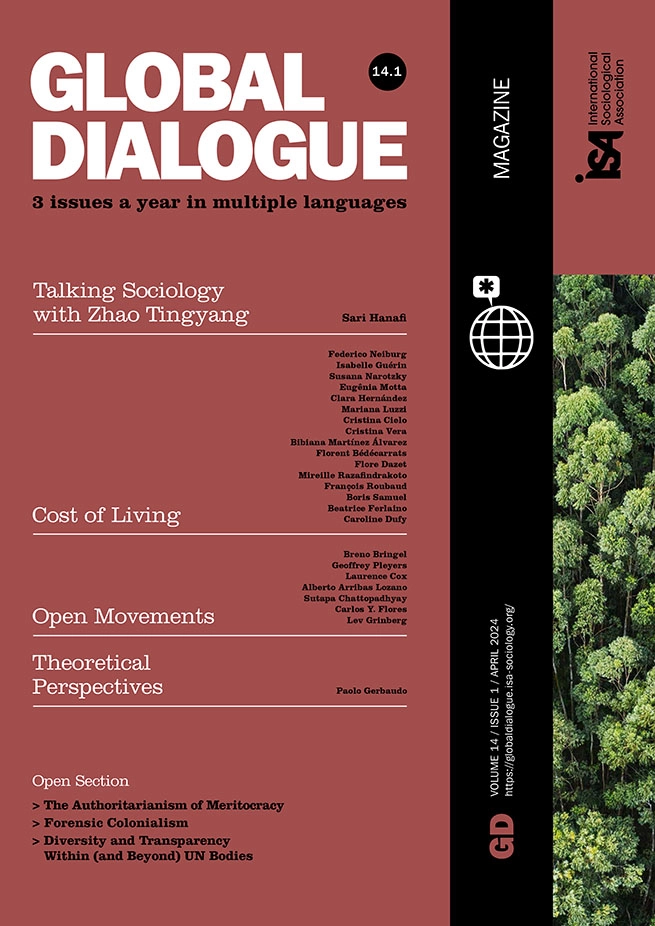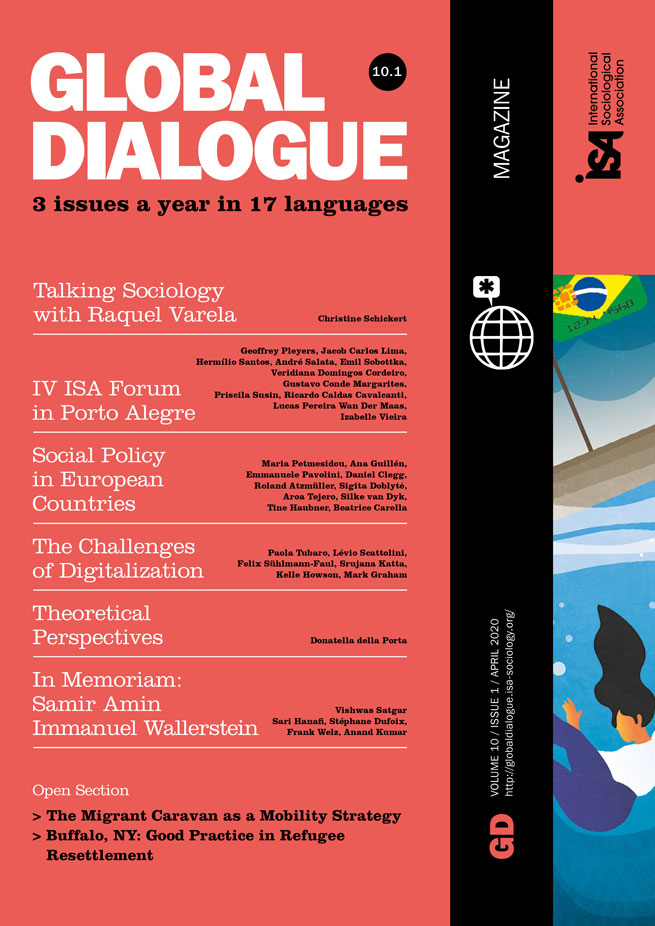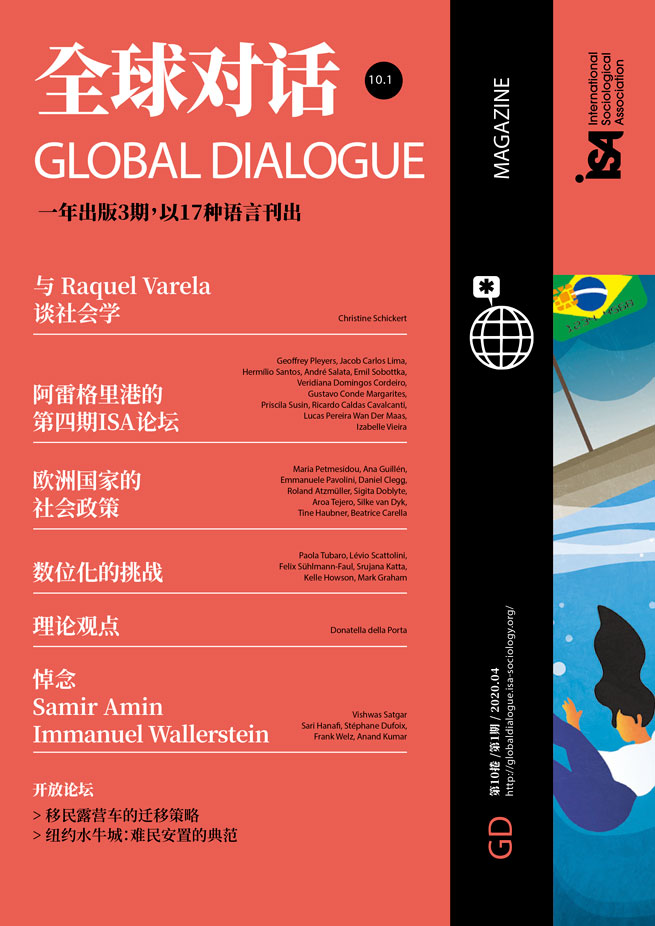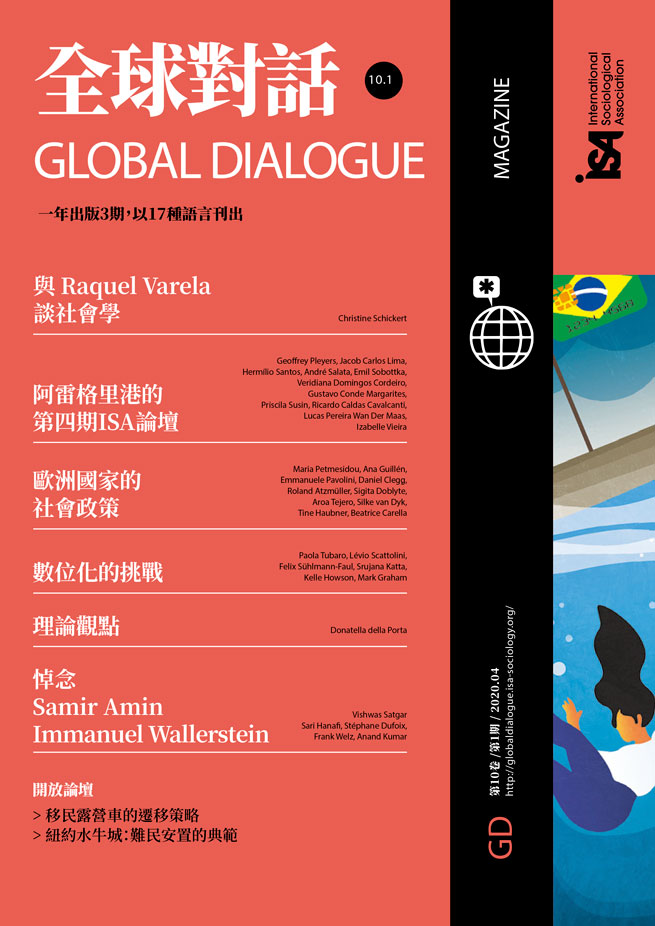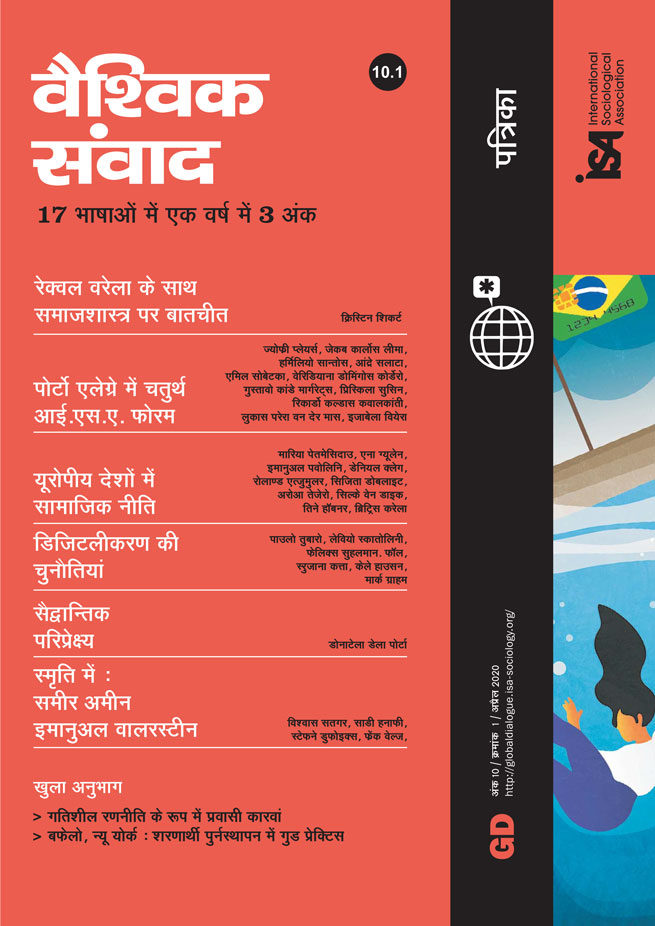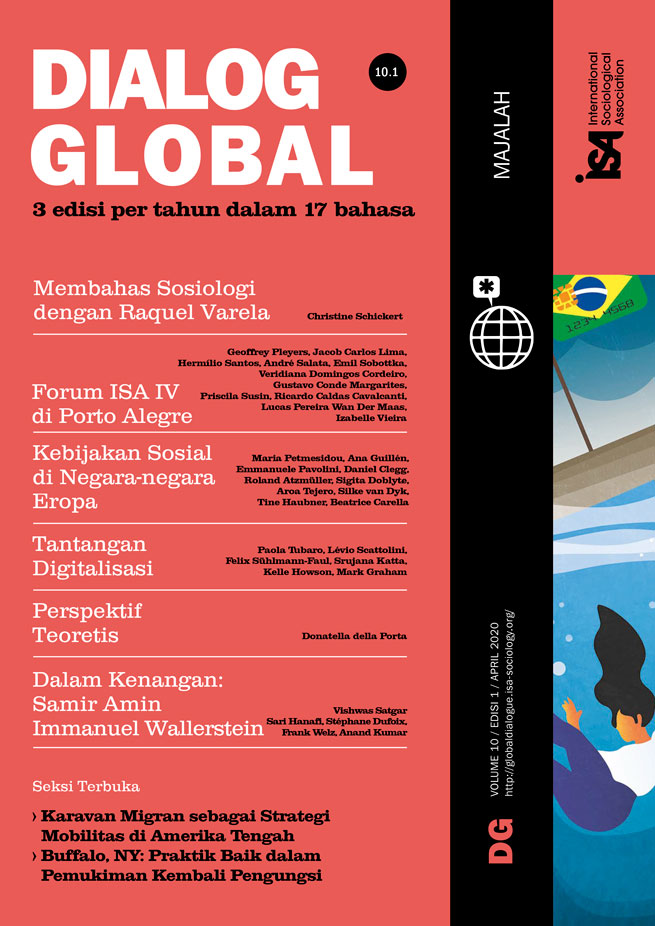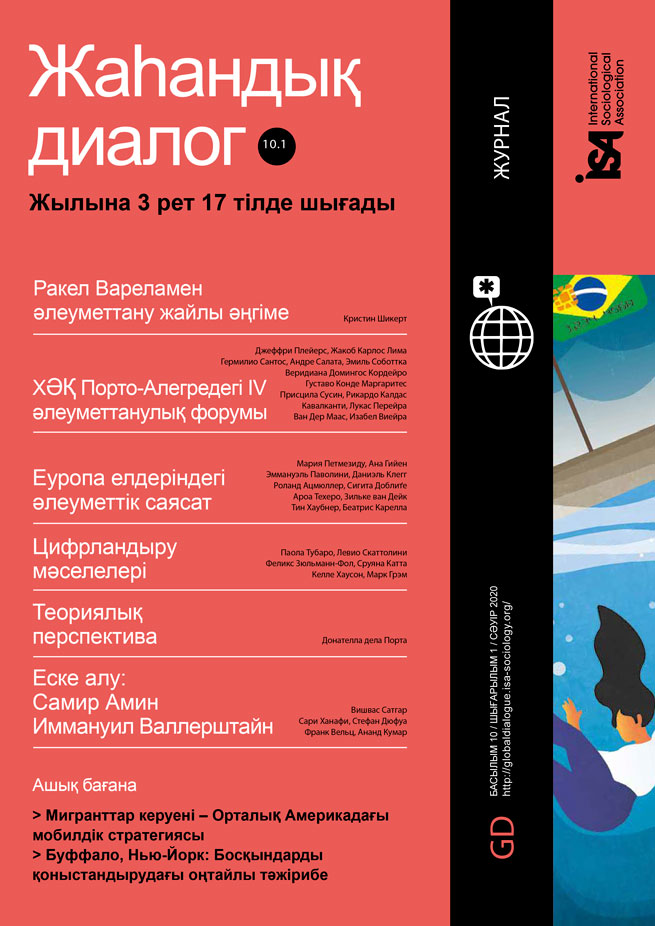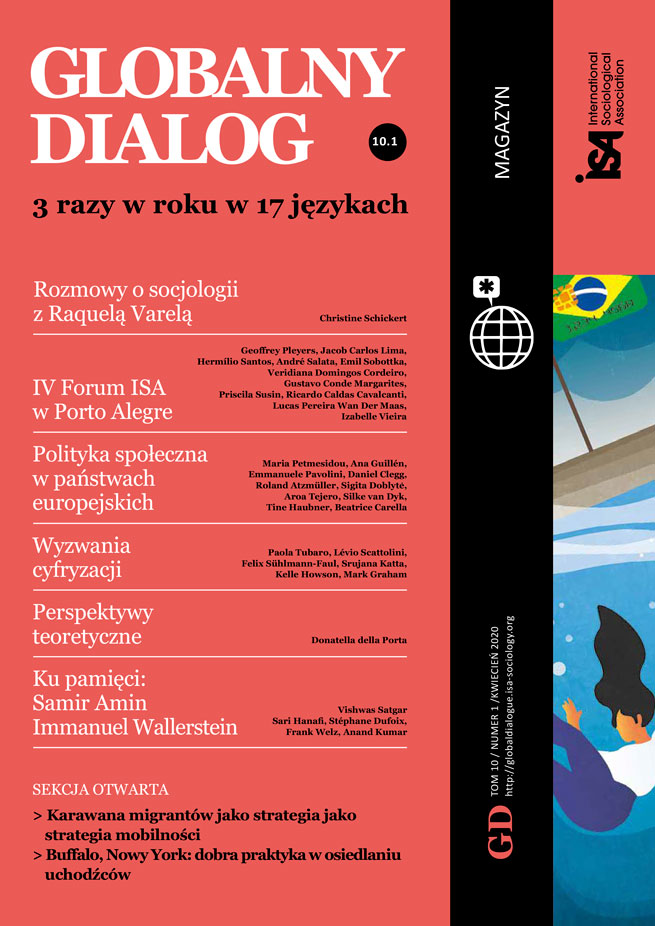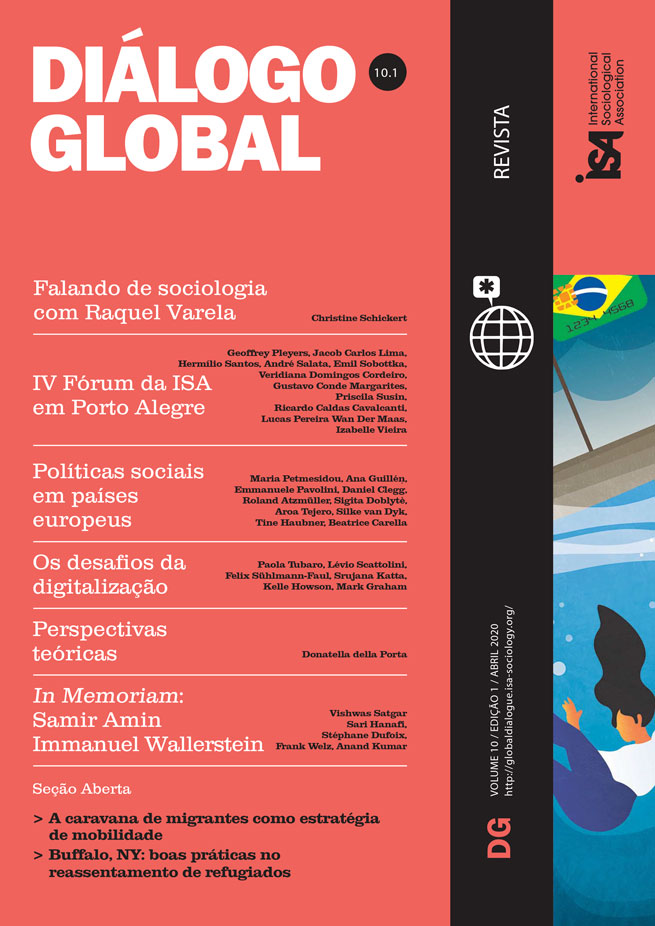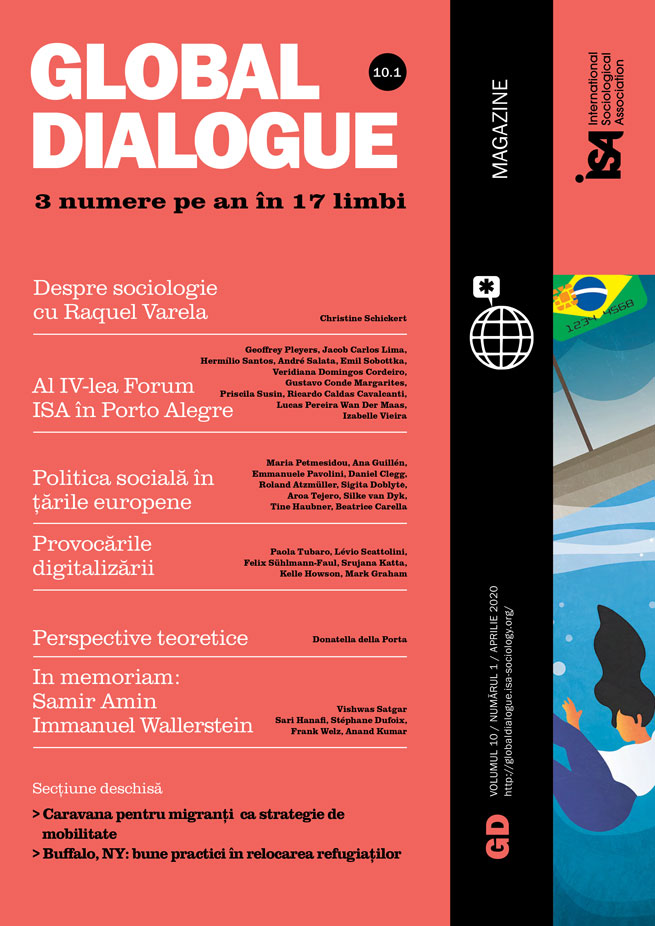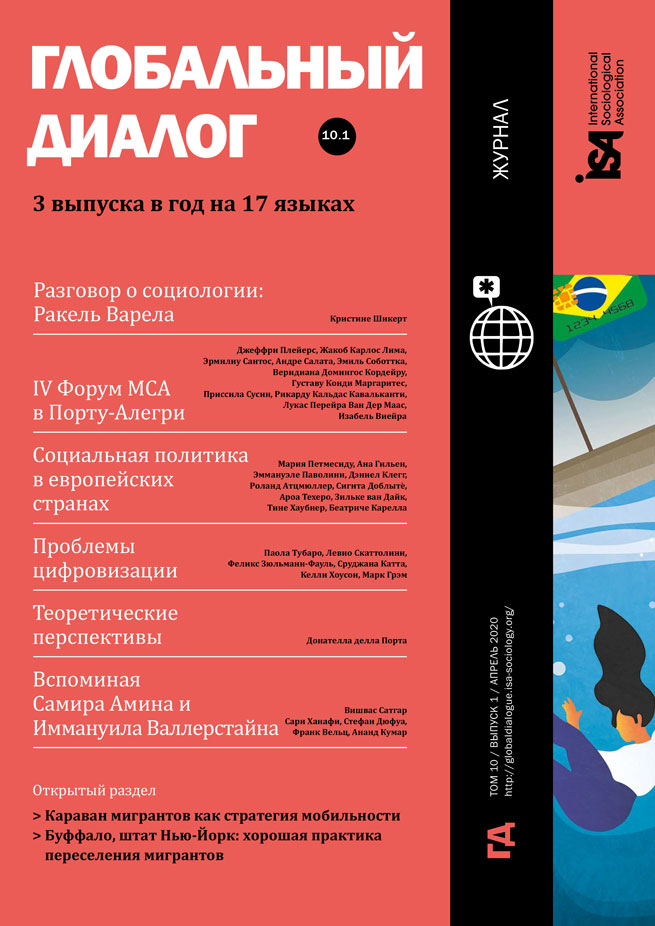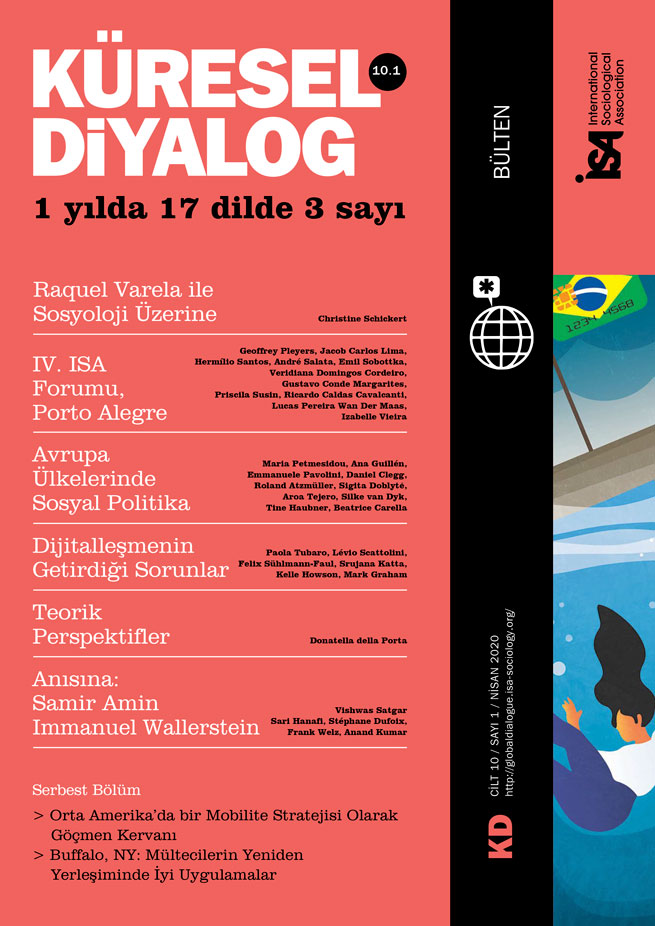The Legacy of the Portuguese Revolution: An Interview with Raquel Varela

February 21, 2020
Raquel Varela is a historian based at the NOVA University of Lisbon in Portugal. Her work focuses on labor history, the welfare state, the history of Portugal and Europe in the twentieth century, as well as the history of social movements. She is the co-founder of the Network for Global Labor Studies and president of the International Association Strikes and Social Conflicts.
In her book A People’s History of the Portuguese Revolution (2018) she tells the history of Portugal’s 1974 Carnation Revolution from below. To do so, she explores the role of the anticolonial movement in Africa, as well as those of Portuguese workers, women, and artists in the process.
Here she is interviewed by Christine Schickert, the administrative director of the DFG Research Group on Post-Growth Societies at the Friedrich Schiller University of Jena, Germany and assistant editor of Global Dialogue.
CS: 46 years ago, in April of 1974, the dictatorship in Portugal ended with a military coup. The immediate reason for the coup was the military’s dissatisfaction with the war Portugal was waging in its colonies. Could you tell us about the situation in the Portuguese colonies in Africa at the time of the war? What were the reasons the military became disappointed with the political leadership?
RV: Portugal was an extremely backward country at the time. It was the last of the old empires and a chronic empire that fought bitterly against the anticolonial revolutions for thirteen years in a terrible colonial war that mobilized more than one million young men between 1961 and 1974. In 1974 alone, 150,000 men were mobilized for the war. The defeat of the colonial war was mainly due to the liberation movement, especially in Guinea-Bissau which was led by a great forgotten Marxist called Amílcar Cabral.
The strong liberation movement and the prolonged fighting made it clear to some of the army officials, mostly officers from the middle ranks, not generals, not soldiers, that the war could not continue, and that a political solution was necessary to end it. So they organized a coup d’état on April 25, 1974. The commander of the coup d’état was Otelo Saraiva de Carvalho. They defeated the regime and removed dictator Marcello Caetano, but they told the people to stay at home. But the people didn’t listen and invaded the streets.
What makes the revolution in the colonies especially interesting is that for the first time what the Third International said would happen, did happen: Unrest spread from the colonies to the center, to the metropolis. After 1975 it spread back to the colonies. The liberation from the dictatorship started with a bloody war in the colonies and then turned into a party in the streets of Lisbon. It was 19 months of the most radical revolution of the post-war era in Europe - it was the last revolution of the post-war, much more radical than May of 1968, and it was the last revolution to question private property.
CS: Let me first take up the point that the military told the people to stay at home but they didn’t. Can you tell us more about that and the situation of the people at the time? Why did they join the army in this revolution?
RV: For 48 years Portugal was a dictatorship and one of the most backward countries in Europe. Between 1961 and 1974 a colonial war on three fronts mobilized more than one million men. Proportionally, the war with the colonies killed more Portuguese than American soldiers in Vietnam. To escape war and poverty many people emigrated - especially to other countries in Europe. About 1.5 million people left the country from 1960 onwards. Portugal had one of the highest rates of child mortality, and women could have their correspondence opened by their husbands.
Portugal was a country of 9.5 million people and on May 1, 1974, one week after April 25, two million people came out celebrating the first of May, demanding not just democratic changes like the end of the dictatorship but also voicing revolutionary social demands like a minimum wage, not working on Saturday and Sunday, being paid for night shifts, or an equal pay for men and women. During the Portuguese revolution three million people were organized in either workers’ commissions, neighborhood commissions, city commissions, or students’ commissions. This was a revolution which happened not just in the industrial sector, which was the most important sector that led the process; workers from all sectors joined in, for example public service workers. So hospitals were occupied by doctors, schools were occupied by teachers. The Carnation Revolution was a late revolution of the twentieth century, so Portugal had already had a very strong service sector employing large numbers of workers. And these people were part of the revolution.
CS: Let me take up a second point you mentioned: you said that the Portuguese Revolution was the last one to address questions of property…
RV: Six hundred companies were occupied and became either self-managed or cooperatives of some form, workers’ control processes were introduced in large companies, and banks were nationalized and expropriated without any compensation to the banking sector. The bourgeoisie actually left the country after some months, escaping to Brazil after being expropriated. In my opinion, although that is a counterfactual analysis (in history we don’t say “if” – this is against the facts), this led to postponing by ten years the introduction of neoliberal policies. Neoliberal politics were not introduced after the revolution because the American president at the time, Gerald Ford, and his administration were really afraid that Portugal could be the start of a red Mediterranean. So what the Portuguese revolution shows is that an economic crisis, as Marx actually pointed out, is not necessarily a disaster for the working class but can be used by them to turn it into a political crisis of the state and against the main ruling classes.
CS: Talking about the people, you called your book A People’s History of the Portuguese Revolution. What was the impulse for that? Why did you want to tell it this way?
RV: Obviously, there is an influence of the ‘history from below’ and the social history from Britain in the 1960s, and more directly it is influenced by Howard Zinn, the American historian and socialist thinker. There is this idea that we have to chronicle the history of the resistance, of the people who struggle, of the people who fight. So we need to include in history not just the history of institutions and governments but history from below, the peoples’ history, anonymous masses that play a role, the resistance of workers. This essential part of history is necessary to a comprehensive understanding. Because the working classes frequently don’t have a notion of what they can do, it is important to write a history of the people, of their actions and show these special moments in history when the working classes are extremely strong and they change the world, they change themselves. We are speaking of a country that until 1974 had been for 48 years the most backward country in Europe and that within the next 25 years went on to become the twelfth country with the best national health service in the world. This is only possible with immense collective strength.
What is also very interesting about the Portuguese revolution is that for the first time the Stalinist approach was really questioned on the left. The May 1968 movement had already questioned the hegemony of Stalinists in big factories in France, but in the Portuguese revolution the questioning was more profound. The so-called extreme left, or the left of the Communist Party, had a huge power in the leadership of struggles, workers’ commissions, in big unions, in both industrial and service sectors.
CS: Let us talk about the legacy of the Portuguese revolution: Is the challenging/questioning of property relations and the reorganization of companies still reflected in today’s political landscape whether at the level of movements or parties? And does it somehow tie into the way Portugal handled the aftermath of the financial crisis/debt crisis after 2008?
RV: One of the last changes in property relations that lasted until the post-troika era was in housing, with controlled prices. One of the demands of the International Monetary Fund and Germany/the EU when negotiating the Economic Adjustment Programme for Portugal during the Portuguese financial crisis (2010-4) was to liberalize the housing market, which has had devastating effects on the working classes (poor and middle). The most lasting effect of the revolution was the confrontation of the far right, which still endures today.
CS: Yes, this is indeed another point that strikes me: following the financial crisis of 2008, in Portugal, unlike in other countries in Europe, no strong right-wing party developed. Could you explain how this is tied to the Carnation Revolution?
RV: That is definitely a consequence of the revolution. The revolution was not solely a transition to democracy but a revolution that made purges in the state apparatus and turned the leadership of the right-wing regime out of the state apparatus. There was a clear break with this leadership. There is no culture and savoir faire of the extreme right in Portugal. This can change, of course, but until now, while the generation of the revolution is still alive I don’t believe it is possible to have a strong extreme right. That, of course, means that in ten years we don’t know what will happen.
Raquel Varela <raquel_cardeira_varela@yahoo.co.uk>
